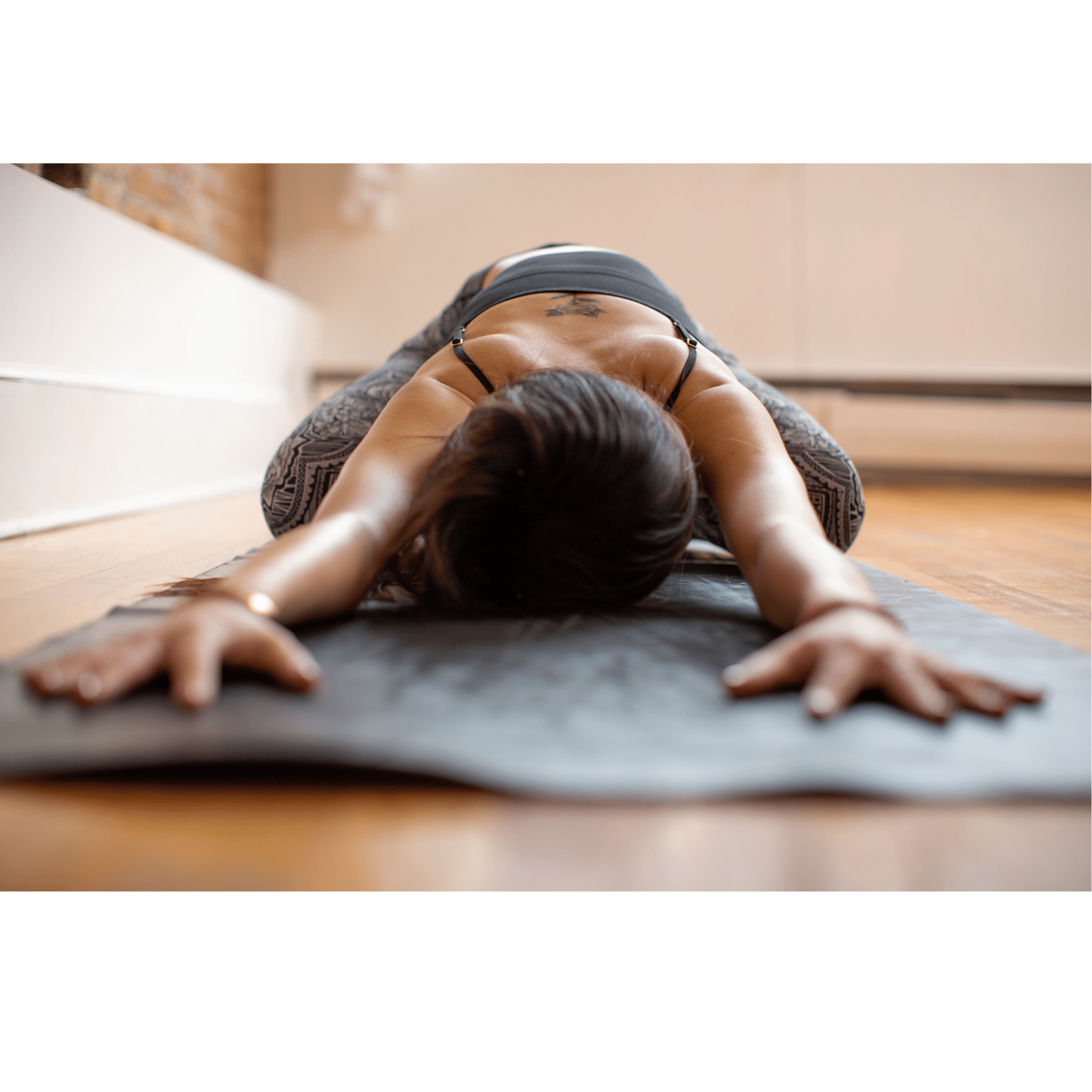
Restorative Yoga vs. Yin Yoga: What’s the Difference and Which One’s Right for You?
This post may contain affiliate links, which means we may receive a commission, at no extra cost to you, if you make a purchase through a link. Please see our full disclosure https://racheldorneanu.com/disclosure-privacy-policy-and-terms-of-use/ for further information.
Restorative Yoga vs. Yin Yoga: What’s the Difference and Which One’s Right for You?
Let’s be honest: when you walk into a quiet yoga class and see bolsters, blankets, and blocks, it can be hard to tell what you’ve signed up for — nap time or deep stretch therapy.
And if you’ve ever wondered, “Wait… isn’t Restorative Yoga basically the same as Yin Yoga?” — you’re not alone.
While they may look similar from the outside (slow-paced, mat-based, super chill), these two styles have very different goals and effects on your body and mind.
So let’s clear things up! Here’s a breakdown of Restorative Yoga vs. Yin Yoga, so you can better understand which practice fits your needs — or how to enjoy both.
What Is Restorative Yoga?
Restorative Yoga is all about deep relaxation and nervous system reset.
In this style, you’ll use plenty of props — think bolsters, blankets, and blocks — to fully support your body in gentle, restful poses. The idea is to eliminate effort, soften completely, and allow your body and mind to fully rest and recharge.
🧘♀️ Typical pose time: 5–20 minutes per posture
🛏️ Focus: Rest, recovery, nervous system regulation
🧠 Mental benefit: Deep relaxation, stress relief, better sleep
👥 Best for: Burnout, anxiety, chronic stress, post-injury recovery, or just needing a good pause
✨ In short: Think of Restorative Yoga as the yoga equivalent of curling up in a cozy blanket fort — with a touch of mindfulness.
What Is Yin Yoga?
Yin Yoga, on the other hand, is a quiet but intense practice focused on deep tissue release.
While it’s also slow and uses props, Yin targets the body’s connective tissues — like fascia, ligaments, and joints — through long-held, passive stretches. Unlike Restorative, there’s some discomfort in Yin as you explore your edges and stay with the sensation.
🧘 Typical pose time: 3–5 minutes per posture
📍 Focus: Flexibility, joint health, fascia release
🧠 Mental benefit: Stillness, presence, learning to sit with discomfort
👥 Best for: Improving flexibility, balancing intense workouts, emotional release, increasing mobility
✨ In short: Yin Yoga is where you meet yourself in the stillness — not always cozy, but deeply transformational.
Key Differences at a Glance
| Feature | Restorative Yoga | Yin Yoga |
|---|---|---|
| Purpose | Rest & recovery | Deep tissue stretch |
| Sensation | Gentle, little to no stretch | Mild to moderate stretch/discomfort |
| Use of Props | Lots, for full support | Some, to support depth in poses |
| Physical Effort | Minimal | Passive but can be intense |
| Target Area | Nervous system & relaxation | Fascia, ligaments, joints |
| Mental Focus | Letting go, unwinding | Mindful endurance, presence |
| Great for | Burnout, fatigue, healing | Mobility, flexibility, emotional processing |
Which One Should You Choose?
Honestly? There’s no need to pick just one.
Restorative Yoga is ideal when you need comfort, calm, or are feeling emotionally or physically depleted.
Yin Yoga is powerful when you want to challenge your flexibility, explore stillness, or bring balance to a more active lifestyle.
✨ Pro tip: Pair a weekly Yin class with an evening Restorative practice for the ultimate combo of release and restoration.
Final Thoughts: Both Are Worth Slowing Down For
In a world that glorifies hustle, both Yin and Restorative Yoga offer something rare: permission to pause.
Whether you’re looking for a soft landing or a deep stretch, you really can’t go wrong. These practices don’t just make your body feel better — they invite your mind to slow down, your breath to deepen, and your nervous system to breathe a sigh of relief.
So next time you see a slow-paced yoga class on the schedule, take it. Bring the bolster. Stay a while.
Your body (and brain) will thank you.
To discuss how mentoring could help you during this season of your life, please schedule your free 15 minute consultation.
